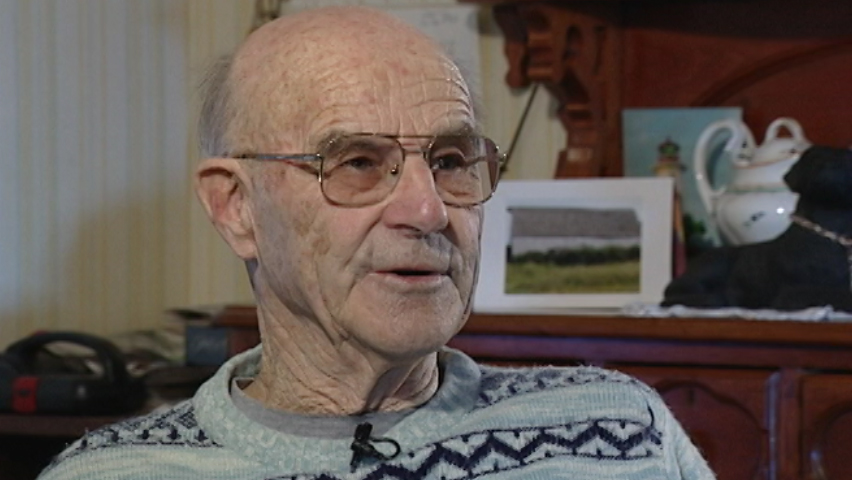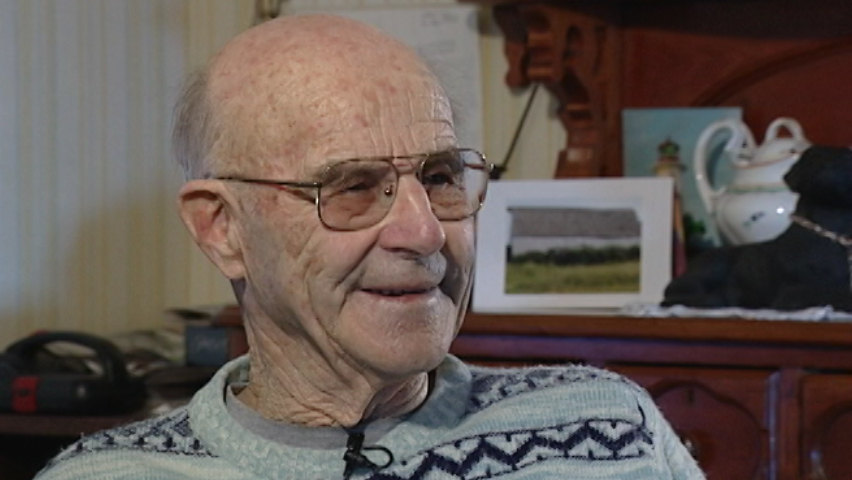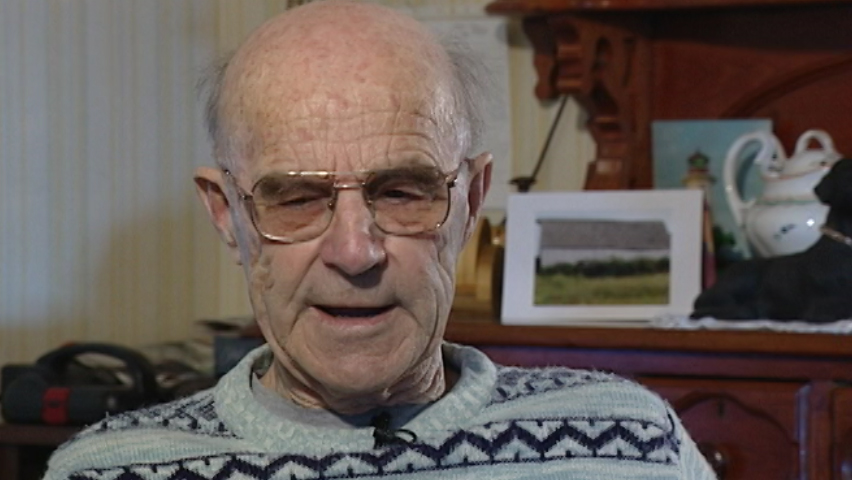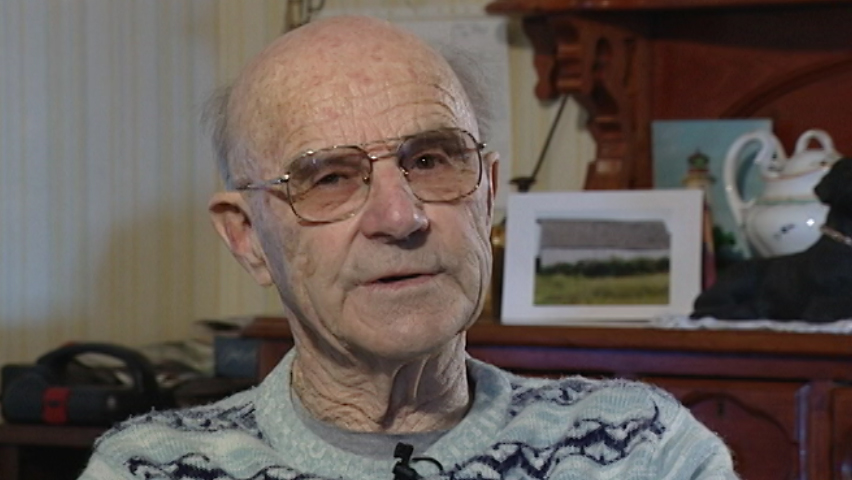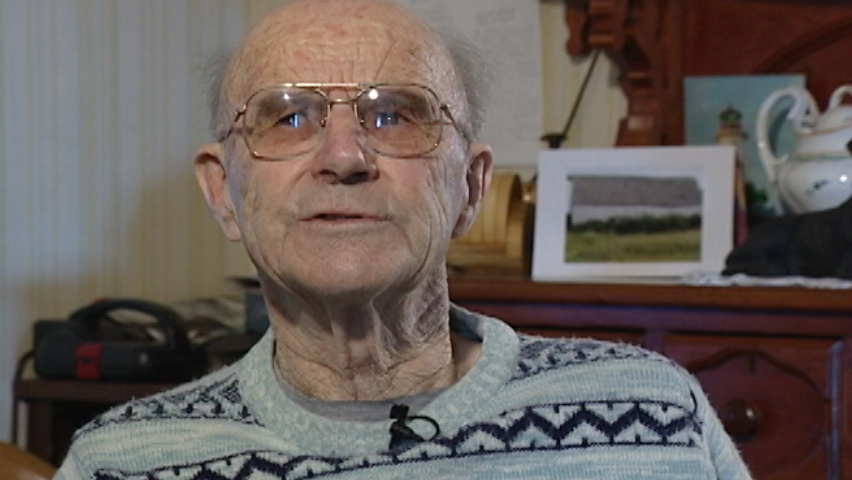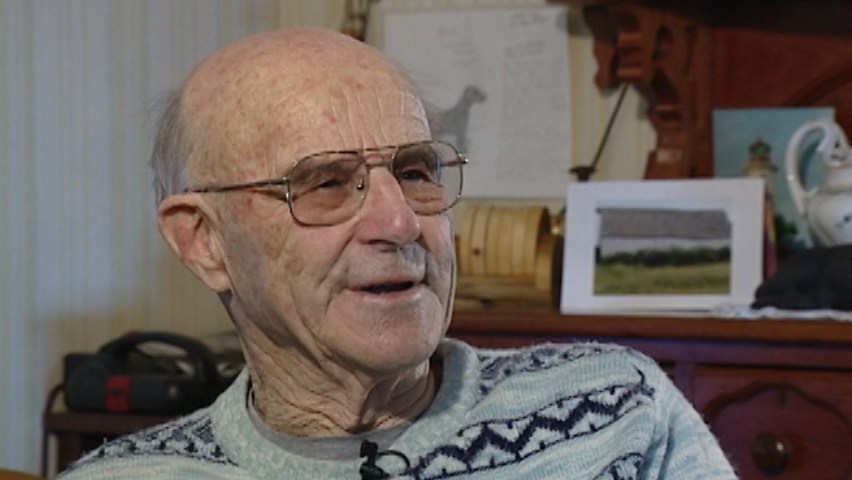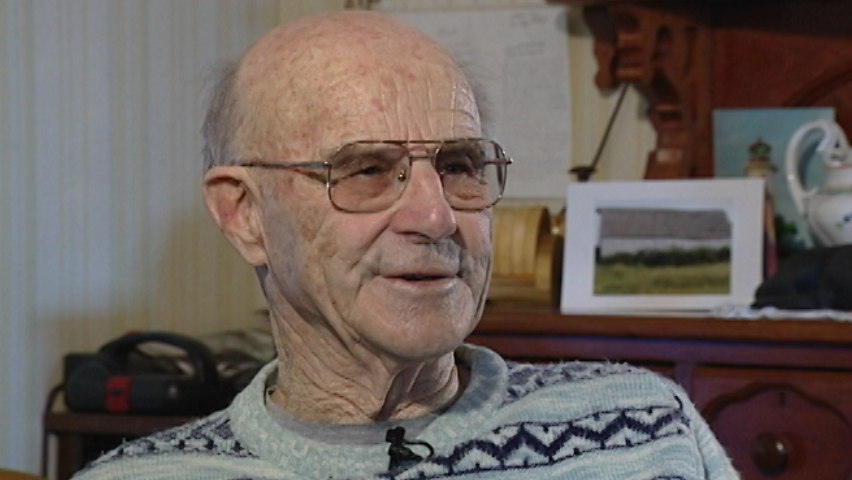They didn’t have penicillin at that time.
Heroes Remember
They didn’t have penicillin at that time.
On her first trip, she left Halifax, she went down to Algiers.
And she picked up patients in Algiers and brought them up to
England, and left them there. And then, picked up a load there
and brought them home. And the boys seen some pretty rough
stuff at that time. But by the time I went on, the war was
practically over, so the patients were in pretty good shape.
They lost several patients that died at sea ‘cause they were in
bad shape, bringing them home. But in my day, it was - talking
to some of the boys that was on before, I was … they said we
had it easy like, in a way, to what ...
patients, they were trying to get them out of England as fast as
they could, to clear the hospitals. And those ones they
brought up from - don’t know if this is good for this tape or not
one of the boys said they were ... imagine the boys coming,
never worked around a hospital, like myself, and went on down to
Naples and they brought these patients on. He said he lifted
up this bandage, maggots in there crawling around.
He said he pretty near turned sick. The fellow said, “Oh,
that’s alright,” he said, “nothing wrong with them.
So-and-so in that bed’s got some of my maggots, and the other
fellow over here’s got some of my maggots.” And that’s no joke!
They didn’t have penicillin at that time and so on, and maggots
would only eat dead flesh, and that’s all they had to ... if you
got too many in the wound, they’d take them out, but they
actually was, that’s what they ... eating up the dead flesh.
It was kind of scary. I didn’t get into that. Seeing that was
that was before my time, before I went on, see.
Related Videos
- Date modified:



